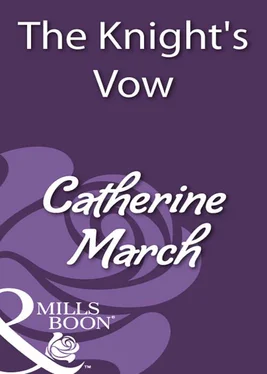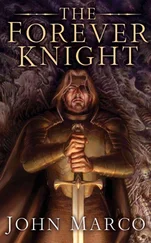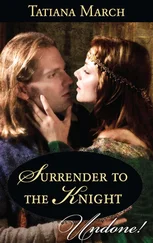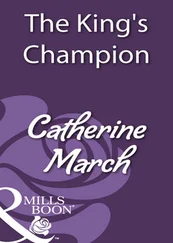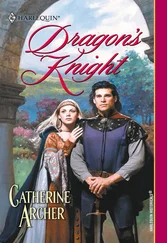Sister Huberta laughed harshly, ‘Well, I care not a fig what Lord Thurstan wants! His daughter has caused us enough trouble these weeks past and we require compensation.’
Silver flashed through the shadows and the Abbess gave a small shriek, as she felt the cold point of steel at her throat.
‘I am averse to killing holy nuns,’ snarled Remy, ‘but I have no aversion to killing a witch! Now, give me the money!’
Under the circumstances, she was obliged to reach for a key at her waist and hurry to an iron-bound, padlocked oak chest that was tucked away in a corner. She opened it and scrabbled about inside for a moment, before drawing out a soft leather pouch that contained four hundred marks. Her mouth a tight thin line, she rose and handed the pouch to her visitor.
Taking it with his left hand, he made a deep bow to her and departed with a final promise. ‘Pray, sister, that I find Lady Beatrice, and that she is safe and well. Or I will be back, and next time I will come with a hundred men and burn this foul place to the ground!’
The Abbess stepped back with a gasp, clutching at her racing heart as the young man left as silently as he had arrived.
Remy found his way back over the wall, vaulted on to his horse and packed away both grapnel and the four hundred marks. Then with a shout and swift kick he galloped through Glastonbury and set off on the road to Ashton. He was anxious to make the Red Lion that night, and urged his horse onwards.
He came upon half a dozen soldiers and joined them to hear what news of Wales. But they were mercenaries, Flemings, and their English was neither good nor pleasant. Dissatisfied with their paymaster, King Edward, they were on their way to Dover and home. Remy felt his nerves twinge and mistrusted the way they looked him over and eyed his saddlebags. He soon parted company with them and galloped on.
The morning was bright and sunny as Beatrice, sitting neatly side-saddle, arranged her dark blue cloak over the folds of her green kirtle. She called out her thanks to the innkeeper and his wife before setting off on the road that would, she hoped, lead her home before the day was out.
She felt refreshed after her night of blissful sleep and two good meals, and she had washed thoroughly in a bowl of hot water before the fire. She was grateful to acknowledge that at least her experience at St Jude had taught her to appreciate even the most basic pleasures of everyday life. With a light heart, humming a tune, she set her horse into a smart trot.
It was a sunny day, but not a market day. There were few people on the road, especially as she was going further and further away from Glastonbury. By mid-morning she paused to water her horse—a fat, unwilling creature—and to eat the cold chicken and bread the innkeeper’s wife had wrapped for her.
Setting off again, they came to a section of woodland and the road was soft with pine needles. The trees crowded in thickly on either side, dark and dense, a blanket of tall bracken spread between them. Beatrice felt a moment of doubt, as she peered fearfully about, unnerved by the sudden lack of birdsong and sunlight. She clicked her tongue to her horse and urged him on, hoping to pass through the woods quickly.
Then she heard a shout, muffled cries, and as she rounded a sharp bend in the track she came upon the two farmers who had helped her yesterday. Their cart was surrounded by a group of men, soldiers by the looks of them, and they were busy ransacking the goods on the back of the cart. Beatrice gave a small cry, shocked at such outrageous behaviour, and would have urged her horse forwards, intending to deal with them in no uncertain manner, when one of the farmers gave a scream and gurgled. His throat was cut and Beatrice halted, her eyes wide with horror. The younger one, perhaps the farmer’s son, turned and saw her, waved his arms and shouted for her to go back, before he too was slashed without mercy.
Beatrice wasted no time in wheeling her horse about, but already two or three of the soldiers had leapt astride their own horses and were after her.
‘Come on!’ shouted Beatrice, kicking furiously at the barrel of the fat gelding’s ribs. He lumbered into a reluctant canter and, whipping him with the reins, Beatrice leaned over his withers as he stretched into a gallop, her cloak flying out behind her.
She heard the pounding of hooves fast approaching and with urgent shouts tried to force a little more speed from her horse. But it was too late, the three soldiers gained ground and soon they surrounded her. They reached over and snatched the reins from her grasp and Beatrice, heart pounding, screamed as leather-gloved hands seized her about the waist and dragged her down. One of them hit her in the face, and she gasped with shock, head reeling. The three soldiers had dismounted and loomed over her. Quickly they searched her saddlebags and finding nothing of interest turned to her with eyes that left her in no doubt as to what they wanted.
They spoke in a foreign language—Dutch, she thought—and she realised they were mercenaries. They jostled her, fingering her fine clothes, her hair. She screamed again as one of them grasped the neck of her kirtle, and ripped it, exposing the soft white skin of her chest. The other two argued over who would go first and fumbled with the fastenings of their braies, shoving one another aside in their eagerness.
She remembered a move she had seen her brothers use when fighting and locked her two hands together, into a fist. She jerked it up, delivering a sharp blow to underneath the chin of the man who held her. His teeth snapped on his tongue and he yelped. She quickly followed this with a vicious kick to the shins. He was so surprised that a small noblewoman was willing to fight, for one moment his hold on her slackened and Beatrice jerked away. In that instant she took to her heels, running as fast as she could up the track, back the way she had come, hoping to find help.
She saw a horseman approaching in the distance and screamed, waving her arms to attract his attention. The mercenaries were quickly gaining on her as their booted feet pounded hard behind her. She had no doubt that it was their intention to catch her, drag her off into the bushes and hold her quiet, until the lone horseman had been dealt with.
With her bodice torn, holding up her skirts as she ran, and her mouth wide open in a scream, she made for a wild sight. Suddenly something whooshed past her and the man nearest made a strange sound. Blood sprayed across her arm and, glancing back, she saw that a small arrow protruded from his neck. He fell instantly.
The horseman galloping towards them lowered a crossbow and, as he had not the time to reload, drew his sword with a ringing hiss of steel. Roaring a war-cry that echoed around the woods, he charged down on the other two men. Beatrice dived into the bracken lining the side of the road, out of the way. She fell to her knees, panting, gasping for breath, and pulling together the torn edges of her kirtle. She looked up, peering through the bushes, and then quickly away, one hand smothering a cry as the horseman slashed with his sword and one of the mercenaries lost his head. She did not look to see how he dealt with the other, but the noise was ferocious, as steel rang on steel, and both men profaned loudly with each blow.
At last, after what seemed like an eternity to Beatrice, all went quiet, except for the snorting pants of his horse and her own harsh breathing that was laboured more from terror than anything else. She rose cautiously, and then remembered that there had been others. The horseman had dismounted and was inspecting the men he had slain, but he turned quickly at her warning shout and had a moment to collect himself before the other three mercenaries ran at him with swords drawn.
Читать дальше
